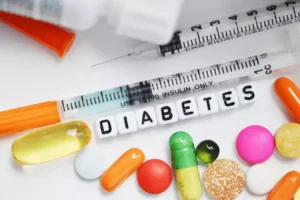
“When you stop using alcohol, it really benefits your overall mental health.” Then, we’ll learn about the benefits of quitting alcohol and ways to stay sober for the days, weeks, and months to come. As always, check in with a healthcare professional to be sure you avoid serious withdrawal symptoms. Excessive alcohol use can lead to both short- and long-term health issues.
Quitting alcohol can be challenging, but the benefits of abstaining can improve your overall health and happiness.
Not all people progress through all of the stages of alcohol withdrawal. Your body has acclimated to quitting drinking over the past couple of years. All of these symptoms can result in the desire to start drinking again. To really improve your health, you must end your relationship with alcohol and quit drinking for good. Drinking too much alcohol can cause many problems and unwanted effects on your health and well-being.
Does Alcohol Cause Inflammation?
Nevertheless, people who have AUD should take extra care before suddenly quitting or significantly decreasing their intake as they can experience symptoms of alcohol withdrawal. This is where the central nervous system becomes so reliant on the depressive effects of alcohol that, when a patient stops drinking, their brain stays in a “hyperactive” state. This can lead to symptoms including anxiety, insomnia and irritability, and in more serious cases, hallucinations, seizures and potentially death.
Treatment Programs

Volpicelli says that some of the negative effects of alcohol on mental health can be reversed if you stop drinking. Many people with alcohol use disorder also have other mental health conditions like depression, anxiety, bipolar disorder, or schizophrenia. Even if you know that there are benefits to quitting alcohol, it does not mean that it’s easy to stop drinking—especially if you’ve been misusing alcohol for a long time. If you need a break from alcohol, going alcohol-free for a month or more can bring about many physical and mental health benefits. Behavioral treatment programs are helpful for people who want to quit drinking. These programs involve working with a team of mental health professionals in a group and individual setting.
For those who don’t require inpatient treatment, it can still make a big difference to seek support. This can look like finding alcohol support groups and looking for sober communities, either online or in your area. Connecting with others who have been through the withdrawal process can provide encouragement and remind you that things will get better with time. The medical community often refers to the “four stages of withdrawal” as a roadmap for what someone might expect right when they stop drinking.
You May Feel Happier
- Counseling is usually recommended for someone experiencing alcohol withdrawal.
- While some of these changes can be uncomfortable for some time, they will eventually begin to improve the longer you abstain from alcohol use.
- One study found that around 70% of participants had sleep problems when they were admitted for alcohol treatment.
- Withdrawal is one of the most uncomfortable parts of the sobriety journey, but it is temporary.
- It is still unknown whether these positive effects of abstinence persist beyond a month, but Moore speculated it could be possible.
But some people might think they can’t quit alcohol because they’re used to drinking too much or for too long. In reality, it’s never too late for you to stop drinking alcohol and recover from its harms. A big part of alcohol recovery is taking steps to improve your lifestyle through changes like diet and exercise.


Non-physical symptoms, like cravings and desire for the comfort alcohol provides, may become more noticeable as the distraction of physical symptoms subsides. Stopping alcohol can seem daunting, especially if you use it frequently or if it is a central part of your social life. You can feel better, decrease your risk of what happens when you stop drinking diseases, think more clearly, save money and even improve your relationships. While there are some short-term withdrawal effects, the long-term benefits are well worth the effort. More than 8,050 New Yorkers die each year due to excessive alcohol use, shortening the lives of those who die by an average of 24 years.
Department of Health

This article discusses the causes, common symptoms, and different stages of alcohol withdrawal. It also discusses various treatment options for alcohol withdrawal and how you can get help. Whether you are a heavy drinker or a binge drinker, excessive alcohol use can result in some serious risks to your health. Some of these risks are immediate, some of them can continue to develop over time. For younger people, the risks due to accidents, injury, and violence far outweigh any possible benefits of alcohol use. For other people, the possible benefits gained from drinking alcohol could also be accomplished by getting more exercise, not smoking, and eating a healthier diet.
- Being addicted to alcohol means that it has control and power over you.
- Remember you are facing a difficult challenge during alcohol withdrawal, but you are not alone.
- But others have taken steps to walk through treatment and then find themselves with an opportunity to get a job in national security.
- You may notice less heartburn, gassiness, bloating and stomach pain, and your bowel movements may become more normal.
- While everyone’s alcohol recovery timeline is different, below is an example of how long withdrawal symptoms may last.